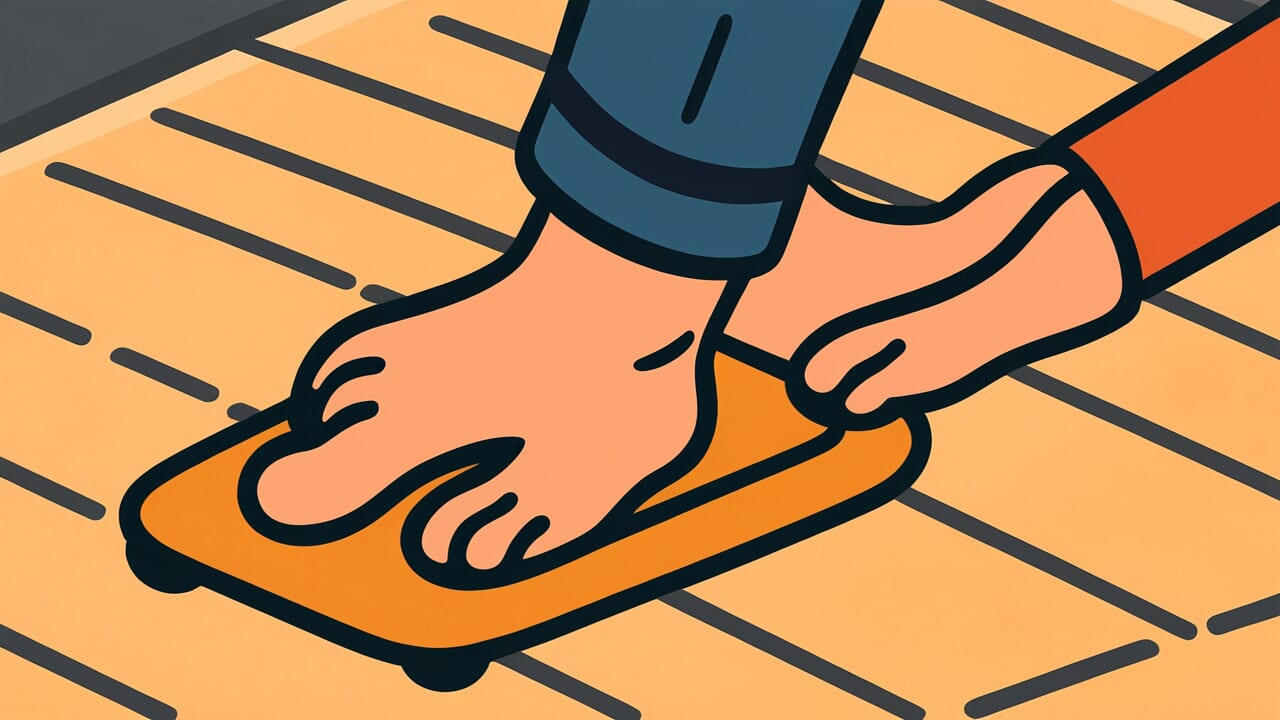How to Read “If you lift your foot, a path will form”
Nukiashi sureba michi tsuku
Meaning of “If you lift your foot, a path will form”
“If you lift your foot, a path will form” means that when you try to do something secretly to avoid attention, your actions leave traces that make you stand out even more.
This proverb is used when someone tries to do something in secret but fails. For example, you act carefully so no one will notice, but that very carefulness makes your behavior unnatural and people notice you anyway.
Or you try hard not to leave evidence, but your efforts to be careful actually create traces. The proverb captures this ironic situation perfectly.
Even today, everyone has experienced trying to hide something and becoming more suspicious, or planning a surprise in secret only to have it discovered.
This proverb sharply points out the contradiction in human behavior: the very act of hiding creates evidence.
Origin and Etymology
No clear written records explain the origin of this proverb, but we can make interesting observations from how the words are constructed.
“Nukiashi” means walking quietly without making footstep sounds. It’s also called “忍び足” (shinobi-ashi), or stealthy steps.
“Michi tsuku” means marks appear on the path, or footprints remain. The combination of these two words reveals the essence of this proverb.
Before the Edo period, dirt and sand roads were common in Japan. On wet roads after rain or ground damp with night dew, footprints always remained no matter how quietly you walked.
People who tried to act secretly at night to avoid attention would have their actions exposed by footprints the next morning. Such experiences likely gave birth to this proverb.
This proverb also contains deep insight into human psychology. The more you try to hide, the more unnatural your behavior becomes, drawing attention from others.
When you become too careful trying to keep a secret, you end up looking suspicious. The wisdom of our ancestors shines through in expressing this human behavior pattern with the concrete image of footprints.
Usage Examples
- I thought I was preparing in secret, but “if you lift your foot, a path will form”—my search history revealed everything
- I tried to sneak a midnight snack, but “if you lift your foot, a path will form”—my mom noticed from the kitchen cleanup
Universal Wisdom
“If you lift your foot, a path will form” points out a fundamental contradiction in human behavior. It’s the paradox that the very consciousness of trying to hide creates traces you cannot completely conceal.
Why do people hide things? Because there’s something they don’t want others to know. However, that strong consciousness of “not wanting to be known” creates careful behavior different from usual.
This appears as unnaturalness to those around you. Things that wouldn’t be noticed if you acted naturally become conspicuous because you try to hide them. This is an ironic truth of human psychology.
This proverb has been passed down for so long because humans are fundamentally beings who cannot hide things perfectly. No matter how carefully you act, traces remain in some form.
Footprints, smells, sounds, or subtle changes in facial expressions and attitudes. We are not as completely controllable as we think we are.
Our ancestors may not have blamed this human imperfection but rather viewed it with warm eyes. After all, having secrets discovered is proof of being human.
When AI Hears This
When the first person crosses a grassy field, the grass bends and creates a slight trace. The next person finds that trace and thinks “this looks easier to walk” and follows the same spot.
The trace becomes clearer, and as the third and fourth people continue, a proper path forms. This is exactly what complex systems science calls an emergent phenomenon.
No one planned to create a path, yet individual rational choices accumulate and unexpected order emerges.
What’s interesting is that once this path forms, it enters a self-reinforcing loop. People walk there because there’s a path, the path solidifies because people walk there, and more people gather because it’s solid.
Mathematically speaking, the law of increasing returns operates here—the more users there are, the higher the value becomes. For example, Windows became the world standard through the same structure.
At first, many people happened to start using it, so software developers created for Windows, which attracted even more users.
This path dependence has a frightening aspect. The first path formed isn’t necessarily the optimal route. Even if there’s a shorter or safer path, once an existing path keeps getting reinforced, no one notices alternatives.
The mechanism by which organizational bad habits and social prejudices become fixed can actually be explained by this same principle.
Lessons for Today
What this proverb teaches us today is the limits of trying to hide things perfectly, and rather, the value of honesty.
In the digital age, every action is recorded in some form. Search history, location data, purchase records. “If you lift your foot, a path will form” rings even more true in modern times.
But the real lesson of this proverb isn’t to lament the difficulty of hiding things.
What matters is avoiding actions that need hiding in the first place. And if you make a mistake, choose honest response over concealment.
The more you try to hide, the wider the wound spreads. Being honest and dealing with it directly often preserves trust better in the end.
This proverb also teaches liberation from perfectionism. As humans, living without leaving traces is impossible. Accept this, and instead boldly leave footprints that are truly yours.
That way of living is ultimately easier and more beautiful, isn’t it?



Comments